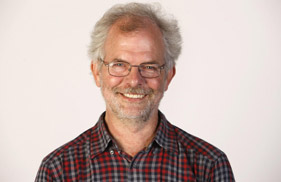Air transport must be restricted says climate change expert

Tourism’s continued growth of CO2 emissions of will make it impossible to keep the global temperature rise below the 2 degree Paris Agreement limit, writes Professor Paul Peeters
The cause? The strong growth of air transport. In the year 2100 air transport will be almost nine times larger than it was in 2015, causing the average distance per trip to double.
As a result, air transport’s share of tourism’s CO2 emissions will increase from 50% in 2005 to 76% in 2100, while air transport covers only about one-third of the tourism market by 2100.
The International Civil Aviation Organisation (ICAO) is responsible for mitigating international aviation’s CO2 emissions. In 2016, ICAO proposed measures but his study shows that these will fail to reduce aviation’s emissions significantly.
Professor Peeters of Breda University has developed a global tourism & transport model, that he used that to test combinations of strong policy measures such as a worldwide 200% air ticket tax, $1000/ton CO2 carbon tax, maximum technological efficiency improvements, 90% subsidies for biofuels, and $200 billion per year investments in high-speed rail development.
These policies only lead to economically and climatically sustainable tourism development when air transport volume growth is legally restricted to below its current volume.
This scenario still allows for tourism transport growth by a factor three ensuring freedom of travel comparable to the current situation.
Professor Peeters says that the CO2 emissions of most elements of tourism – accommodation, rail and car transport – can, according to current knowledge, be reduced close to zero, but this is not possible for air transport. The reasons are that ‘evolutionary’ technology develops too slow, technological revolutions will come too late if at all, and sustainable biofuels have a minor impact.
His main recommendation to policymakers is to develop policies that will curb the growth of average travel distances and the slowly reduce average distances and the share of air transport.
Says Professor Peeters " The conclusions may have far-reaching consequences for the way global tourism may develop the coming decades, as the possibilities of growth of aviation will be limited in a Paris Agreed 2 degrees C temperature rise world.
The global emission path has been reconfirmed past week in Bonn during the UNFCCC climate negotiations. I have assessed many policy strategies to ‘fit’ tourism’s emissions within the general UNFCCC goal but failed to accommodate a nine times larger volume of aviation by the end of the century (2100).
You can see the thesis and the global model developed for the research HERE:
Valere Tjolle
@ValereTjolle
 United Kingdom
United Kingdom United States
United States Asia Pacific
Asia Pacific












































Dozens fall ill in P&O Cruises ship outbreak
Turkish Airlines flight in emergency landing after pilot dies
Boy falls to death on cruise ship
Unexpected wave rocks cruise ship
Storm Lilian travel chaos as bank holiday flights cancelled